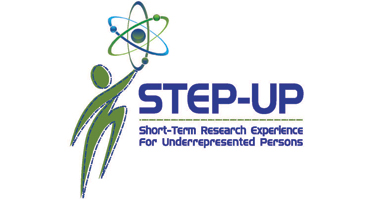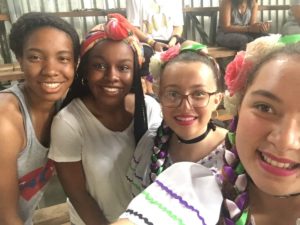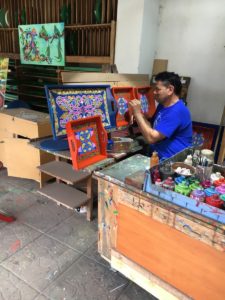NIH STEP-UP Program Undergraduate Application
- The various events or experiences that have helped shape your desire to learn more about biomedical, clinical, social or behavioral research
- Your short and/or long-term academic and career goals
- How a research experience through STEP-UP will positively influence your career development
The STEP-UP program is an opportunity to make my thoughts, ideas, and goals a reality. I would like to participate in STEP-UP because this program will not only expand my research horizons, but give me the skills I need as I continue my college career.
From a young age, I had to maneuver around my allergies and sensitivities. Random irritants would bother my skin, normal products caused inflammation, and I was always skeptical about the food I ate because I was afraid I would spontaneously react. It was a hectic way of living, so my mom finally decided to take me to the allergist. After taking the allergy test and the results revealed an extensive list of allergies, my suspicions were confirmed. While it was not the most enjoyable visit to be poked and prodded with needles just for them to tell me what I seemingly already knew, this was not the only realization I had at the doctor’s office that day.
Watching my doctor calmly interact with me as a nervous patient while informing my mom what the results revealed and direct his employees simultaneously fascinated me. I’d heard of doctors owning a practice before, but it never appealed to me as much as it did when I was in the patient room. As soon as I got home, I hopped on my computer and began doing some research on immunology. It was both interesting yet alarming to read about the body’s processes and disorders. It was even more surprising to find out that I am one of the millions of kids in my generation developing a multitude of intolerances and allergies. The more I read, the more I discovered the correlations between agricultural and environmental sciences with immunology and the state of youth today. The foods we eat directly affect our body’s overall health, whether that be for the good or bad.
With my newfound interest, I decided I would like to study environmental sciences and Spanish throughout my undergraduate years while also on the pre-med track. My dream is to become an immunologist and eventually have my own practice. As an established doctor, I will then create an environmentally sustainable organization that will focus on educating people about our role on the planet and what we need to do to maintain our communities. I want to launch an organization promoting environmental conservation because our earth is just as important as the people in it. It is our job to take care of our environment we live in because we will have no future without it. I have always had an interest in conservation, but it quickly became a passion after my trip to Costa Rica two years ago. Costa Rica is one of the most environmentally conscious countries in the world and while I was there, I saw all of the ways that other countries could implement solutions to our environmental issues in daily life. For example, Costa Rica’s sanitation system is eons ahead of ours because they have minimal waste and recycling centers are common. They utilize hydroelectricity for a lot of the island and actively work to preserve their wildlife. Just as people in Costa Rica advocated for environmental change, people need to be the catalyst that creates these opportunities in America. I would like to be one of those people. Environmental science studies encompass many of world issues today, such as the agricultural industry, pollutants, allergies, and disorders that younger generations carry in abundance. These topics are so heated that a lot of research is dedicated to finding alternatives and solutions to these issues. While I may or may not be researching one of these topics specifically, getting the chance to research at an institution during my college years would be an invaluable experience.
As a first-year at Emory University, my studies will cultivate my enthusiasm for the people of this world and the success I know I can achieve. My interest in bodily systems, specifically the immune system, as well as environmental protection is unwavering. I chose my career path in an effort to leave the world a healthier and happier place for those who come after me.
Because of my career choice, research is guaranteed for the rest of my life. This hands-on, professional experience is exactly what I need as I continue to transition into a different period of life. NIDDK’s goal of maintaining a strong foundation of students studying diseases and conditions aligns with my own agenda as a future doctor and entrepreneur.

The program I intend to participate in this summer!


